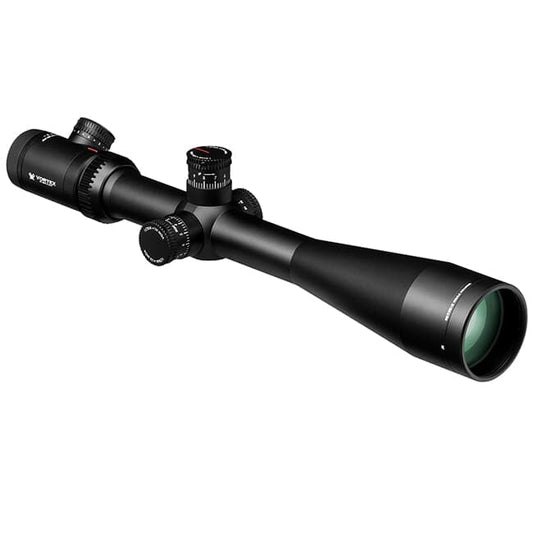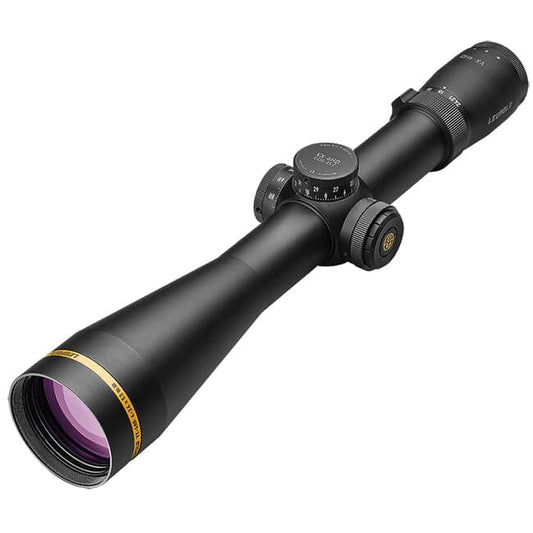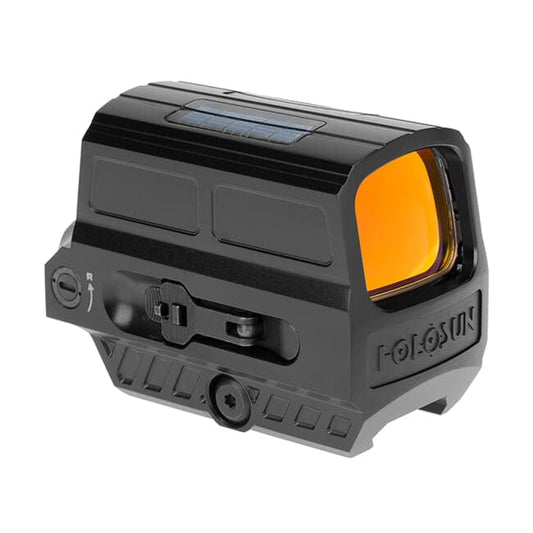11 Tips for Maintaining and Cleaning Your Riflescope
Imagine this: You're on a hunting trip, your target in sight, you aim and - Oh no! Your vision blurs. The culprit? A poorly maintained riflescope.
Every seasoned shooter knows that the secret to a successful shot isn't just in the skill, but also in the maintenance of your tools. Sound intriguing? Let's dive deeper!
Importance of Maintaining and Cleaning Your Riflescope
Do you enjoy a clear vision while hunting or shooting? If so, you have your riflescope to thank. But here's a question to ponder - are you taking care of it as well as you should be? Your riflescope, much like a car or a computer, needs regular maintenance for optimal performance.
An article in the American Hunter magazine emphasizes the importance of riflescope maintenance: "A well-maintained scope enhances precision and extends the device's lifespan." Your riflescope isn’t just another accessory. It's an investment, one that requires your attention and care.
By maintaining and cleaning your riflescope regularly, you can prevent common problems such as foggy lenses or loose settings, ensuring a better shooting experience. Doesn't that sound like a worthwhile investment of your time?
Tip 1: Gather the Necessary Tools and Supplies
Starting your riflescope maintenance without the right tools is like trying to cook without utensils - possible, but unnecessarily difficult. Here's a basic list of what you'll need:
- Soft brush or air blower
- Microfiber cloth or lens cleaning paper
- Lens cleaning solution
- Lubricant for moving parts
Famous shooter and riflescope expert, George Harris, mentions in an interview that "using the right tools is half the job done. Precision devices require precision care."
Tip 2: Handle Your Riflescope with Care
A riflescope is a delicate piece of equipment that requires careful handling. You wouldn’t juggle with crystal glasses, would you? So, why risk damaging your riflescope? George Harris further recommends treating your riflescope like a "fragile, precision instrument."
Avoid touching the lens with your fingers, as our skin naturally secretes oil that can smudge the lens. Remember, a thumbprint could mean the difference between hitting your target and missing your shot!
Tip 3: Remove Dust and Debris
Before embarking on your cleaning mission, you need to remove any dust and debris. It's like sweeping the floor before you mop - one step makes the next one more effective.
Use a soft brush or an air blower to get rid of dust or debris. As Ted Brue, the author of the book "Essentials of Shooting," advises, "Treat your riflescope lens like a delicate artifact. Rough handling can scratch the lens, impairing your view."
Tip 4: Clean the Lens
The lens is the heart of your riflescope, and it requires utmost care. As Ted Brue mentions, "A clear lens is key to a clear vision." Use a microfiber cloth or lens cleaning paper to gently clean the lens.
Moisten the cloth or paper with a lens cleaning solution and wipe in a circular motion from the center outwards. Remember, gentle and steady wins this race.
Tip 5: Clean the Body and Exterior Parts
While the lens is crucial, we shouldn’t neglect the body and exterior parts of the riflescope. Dirt and debris can make their way into tiny crevices, potentially causing problems down the road.
Use a soft cloth for the body and a toothpick or cotton swab for the crevices. It's like detailing your car - the small touches make a big difference.
Tip 6: Lubricate Moving Parts
The moving parts of your riflescope, such as adjustment rings and turrets, need to be lubricated for smooth operation. However, George Harris warns that "over-lubrication can lead to as many problems as no lubrication at all."
Make sure to use a lubricant specifically designed for riflescopes and use it sparingly. Remember, more isn't always better!
Tip 7: Store Your Riflescope Properly
Storing your riflescope in a cool, dry place prevents moisture damage and extends its life. Riflescope expert, George Harris suggests "using a safe or gun cabinet for best storage conditions."
Remember, a properly stored riflescope is less likely to require frequent maintenance. So, give your riflescope a good home!
Tip 8: Regularly Inspect for Damage or Wear
Preventive care is better than cure, wouldn’t you agree? Regular inspection of your riflescope can prevent minor issues from becoming major ones. Check for signs of wear and tear, scratches on the lens, or loose parts.
Ted Brue also advises keeping an eye out for signs of rust or corrosion during your inspections. After all, the sooner you catch a problem, the easier it is to fix.
Tip 9: Avoid Harsh Cleaning Agents
Cleaning your riflescope requires special care and attention. George Harris warns against using harsh cleaning agents that can damage the lens coating or cause corrosion. Always opt for a specialized lens cleaning solution.
Remember, when it comes to cleaning your riflescope, gentleness is key!
Tip 10: Seek Professional Help if Needed
Despite our best efforts, there may be times when we need to seek professional help. As George Harris advises, "Don’t attempt to fix serious issues like internal fogging or mechanical failure on your own. You could end up causing more damage."
Remember, there's no shame in asking for help. Better safe than sorry, right?
Bonus Tip: Use Lens Covers and Protective Accessories
As the saying goes, "prevention is better than cure." Using lens covers and other protective accessories can save you from frequent maintenance work.
As Ted Brue recommends, "Using lens covers when your riflescope isn't in use can prevent dust accumulation and minor scratches." Investing in protective accessories like scope coats or neoprene covers can also provide additional protection against shocks and impacts.
Conclusion
By now, you're well-equipped with tips and tricks for maintaining your riflescope. But remember, knowledge is only powerful when applied. As George Harris says, "A well-maintained riflescope is a reliable partner in your hunting or shooting adventures."
Remember, the journey to a well-maintained riflescope starts with a single step - your decision to start. So, when are you beginning your riflescope maintenance journey?





